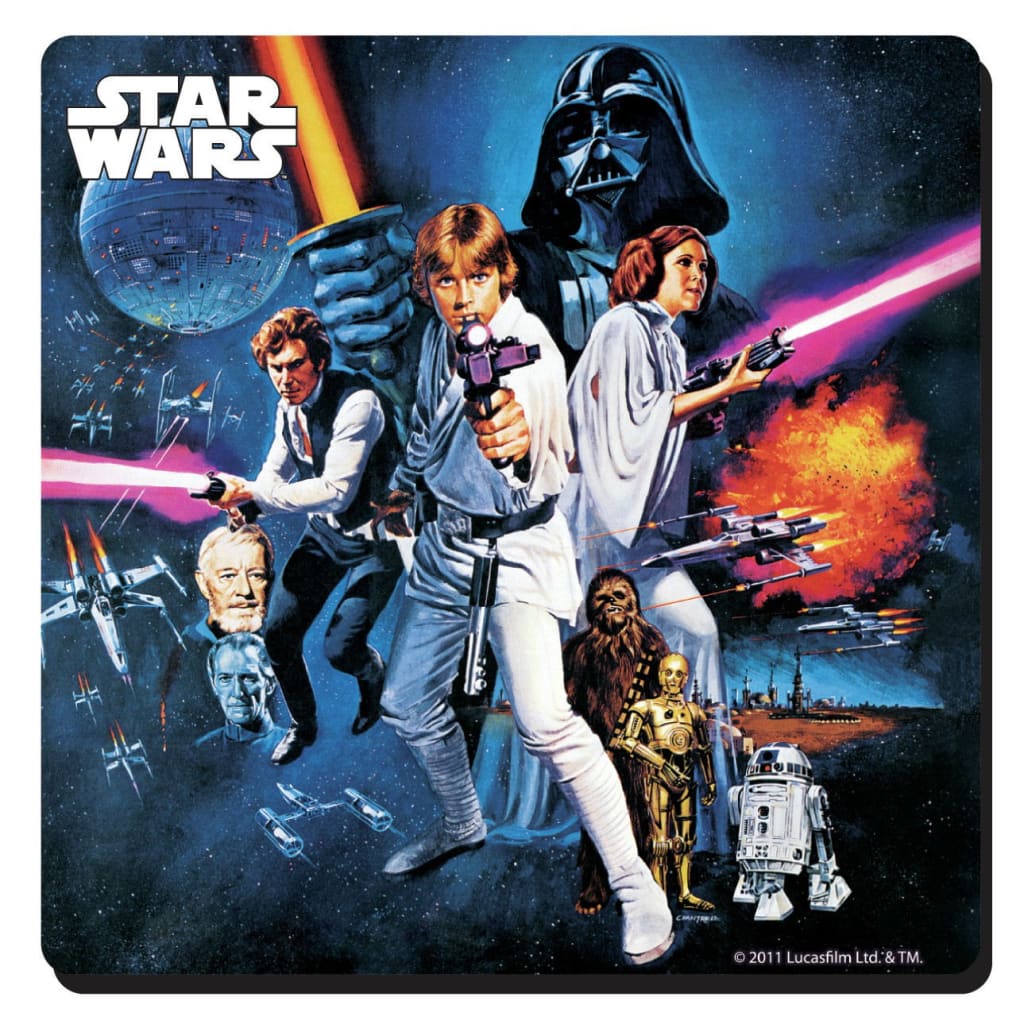
As incredible as it may seem, 40 years ago today we saw the release of the first Star Wars film, A New Hope. Nobody then could have imagined the blockbuster franchise that would emerge from #GeorgeLucas's wonderfully creative movie. Now, as we celebrate the anniversary, we look back over the last 40 years to see how dramatically the primary warriors of the series, the Jedi, have changed as the franchise evolved.
The Jedi In Star Wars: A New Hope
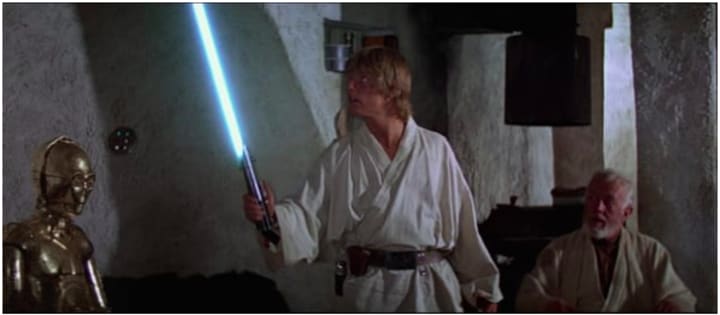
Luke and Obi-Wan. [Credit: Lucasfilm]
Comb through A New Hope for the secrets of the Jedi Order, and you'll be left with more questions than answers. That was a deliberate choice by George Lucas; the more detail he offered, the more he felt it detracted from the story. As he explained:
"The real essence was to deal with the Force but not be too specific with it."
Obi-Wan Kenobi was the primary source of information about the Force. He described it as the source of a Jedi's power, an energy field created by all living things, binding the galaxy together. Even in that first film, it's clear that the Force is divided. Darth Vader, after all, believes in the power of the dark side. But what does it mean to be a Jedi, or to be a Sith? In the next film, The Empire Strikes Back, Lawrence Kasdan added far more poetic descriptions, voiced by Jedi Master Yoda, but the comments didn't really explain it much more.
In The Days Of The Expanded Universe
In October 1987, West End Games published the first rulebook for the Star Wars Roleplaying Game. The game, surprisingly, laid the foundations for so much of what we know and love. For example, the first version of the Jedi Code was published by WEG.




In the 1990s, Star Wars novels and comics began to breathe new life into this dearly-loved franchise, and the authors followed the rulebook's lead. These early concepts of the Jedi featured a strange blend of Christianity and Buddhism. (George Lucas once described himself as a Methodist Buddhist, so he probably wouldn't mind.)
WEG stressed that the Jedi were all about peace, order, justice, and wisdom; in fact, every time a Jedi used their lightsaber to kill, they stain their very spirit.
Meanwhile, the novels happily drew upon Messianic imagery as they showed Luke as the first of a new Jedi Order. Writers like Michael Stackpole, Timothy Zahn and Kevin J. Anderson focused in on the redemption motif that had been crucial to Luke's story, and established that as foundational to the Jedi's understanding of the Force.
Nowhere was this more explicit than in Kevin J. Anderson's Jedi Academy Trilogy, which drew deliberate parallels between Luke and Jesus. The novel trilogy saw Luke gather twelve disciples, walk across a lava lake (one-upping the famous 'walking on water' miracle), and face betrayal when one of his followers was tempted by an ancient Sith spirit. Luke's spirit was cast from his body for a time, but finally returned. The Messianic imagery was remarkably consistent - and staggeringly overt.
George Lucas Returns
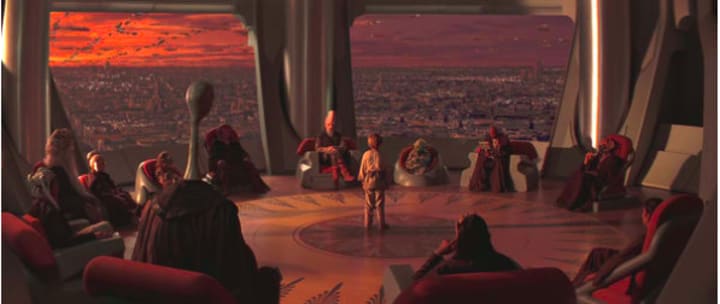
The Jedi Council. [Credit: Lucasfilm]
With Star Wars back on the world's radar – the novels were New York Times bestsellers, and many were critically acclaimed – George Lucas returned to the story, bringing it back to the big screen. As it told the story of Anakin Skywalker's fall, the Prequel Trilogy focused on the Jedi Order.
As Chris Taylor writes in How Star Wars Conquered the Universe:
"The prequels complicate our notion not just of the Force but of the Jedi Knights themselves. We see the Jedi in repose, in what looks like prayer or meditation, depending on your point of view. But we also see an order that is too rigid, an order destroyed, like the Templar, because it was dragged into war by its attachment to being "guardians of peace." Everything in the original trilogy tells us the way of the Jedi is the last hope of the galaxy. But everything in the prequels tells us the Jedi themselves had flaws that were all too human. It's as if Lucas built a religion by accident and then decided to tear it down at its foundations."
I view the Prequels as, essentially, a deconstruction of the Jedi. They take everything fans had come to view as fundamental to being a Jedi, and expose the flaws. Take the principle of non-attachment, a central tenet of the Jedi Order in the Prequel Trilogy. This leads directly to Anakin Skywalker's fall; and yet, contrast that with the Original Trilogy, where Luke's belief in his father is what ultimately leads to Vader's redemption.
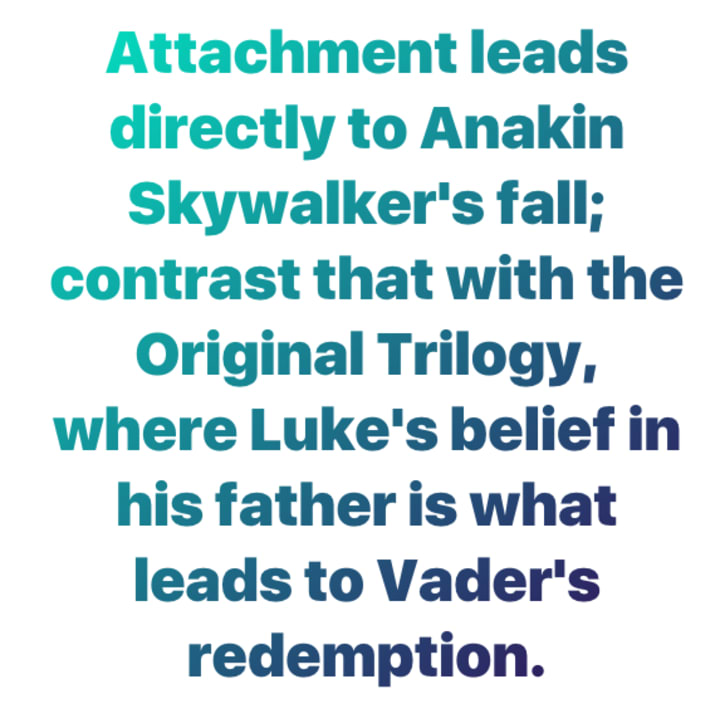
The Prequels caused absolute chaos in the Expanded Universe, particularly because the novels were ongoing while the films were still being produced. After all, the Expanded Universe had seen Luke rebuild the Jedi Order - but it didn't look anything like the Jedi Order of the Prequel Trilogy! At the same time, the novels switched publishers, from Bantam to Del Rey. Del Rey dared to be a lot more ambitious with the franchise. By 2003's The Unifying Force, they were daring to suggest that the old light / dark dichotomy was flawed. They soon backed down, revealing that this was a heresy taught by a Sith who had infiltrated the Jedi Order.
Disney Takes Over
In 2012, Star Wars fans were shocked to learn that George Lucas had agreed to sell Lucasfilm to Disney in a deal worth $4.05 billion.
Lucasfilm and Disney soon realized there was no way to relaunch the film franchise while keeping the old Expanded Universe; it was too vast and too cumbersome. To give you an idea of the sweeping scale of the old Expanded Universe, the tremendous Star Wars: Legacy series actually explored events a hundred years after Return of the Jedi. The Expanded Universe boxed Disney and Lucasfilm in, so a simple, sweeping decision was made: they discounted it completely.
The old Expanded Universe was now considered to be 'Legends,' myths if you like, that offer a window into the galaxy as it may be. Free to explore the Star Wars galaxy in fresh and creative ways, the Disney-owned Lucasfilm has, so far, followed Lucas's lead in avoiding defining the Jedi. There are signs that's about to change, however. #TheLastJedi is set to focus in on Luke's training of Rey, and the first trailer featured an ominous warning that it was time for the Jedi to end.
The modern Lucasfilm seem well aware that the Prequel Trilogy deconstructed the Jedi Order. They accept that the Jedi are not the galaxy's hope; rather, that hope seems to lie in something deeper. That's why the newer films have stressed diverse Force-groups such as the Guardians of the Whills, and why the first trailer reminded us of the word 'balance,' a very non-Jedi concept, yet one that was integral to the Prequel Trilogy.
40 years after the release of A New Hope, we're eagerly awaiting the next Star Wars film. But is it really time for the Jedi to end? Or is it the case that, rather, it's time for them to be redefined for the next generation? We've come a long way since Obi-Wan first told Luke about the power of a Jedi Knight, but the journey has only begun.
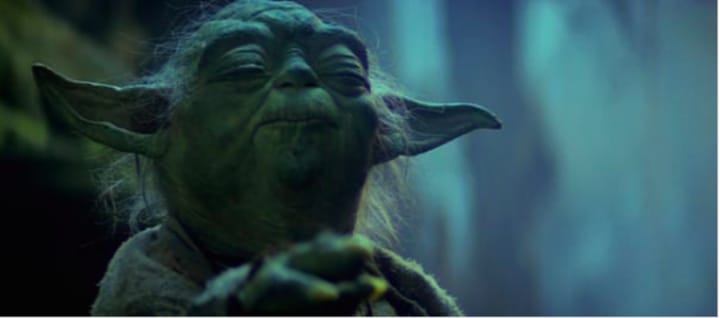
Credit: Lucasfilm
(Sources: Chris Taylor, How Star Wars Conquered the Universe; West End Games, Star Wars Roleplaying Game Rulebook (1987 and 1992 editions)
About the Creator
Tom Bacon
A prolific writer and film fan, Tom has a deep love of the superhero genre.


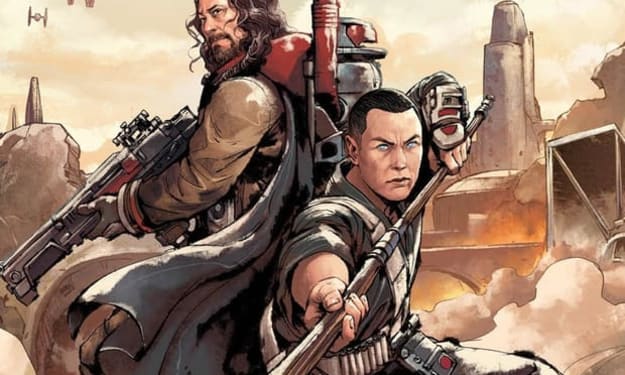

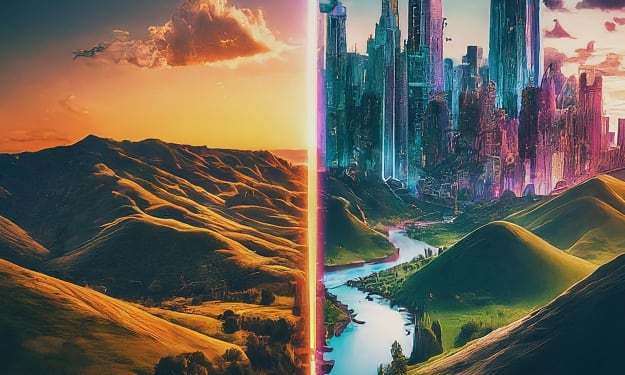

Comments
There are no comments for this story
Be the first to respond and start the conversation.